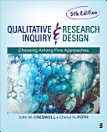Teaching Quantitative Methods: Getting the Basics Right
About this ebook
Addressing the perceived ′crisis of number′ in a practical and fresh way the book sets out dynamic new approaches to teaching quantitative methods. It offers historical, comparative, analytical reflection and empirical evidence concerning the crisis in contemporary social sciences.
Experts from across the social sciences provide a wide range of authoritative insights as well as a number of useful illustrations of strategies and resources designed to help overcome this ′crisis of number′. Each chapter reflects the diversity of backgrounds and approaches within the social sciences making this an interdisciplinary, relevant addition to the subject.
The book also:
o focuses on innovations in how to teach quantitative research methods
o reports on the latest ESRC research projects on teaching quantitative methods
o locates itself within current debates about skills for employment.
Clear, engaging and original this book will be essential reading for those interested in learning and teaching quantitative methods.
About the author
Malcolm Williams is Professor and Director of the School of Social Sciences at Cardiff University. Prior to joining Cardiff in 2010, he was Professor of Social Research Methodology and Head of the School of Psychosocial Sciences at the University of Plymouth where he taught for 16 years. Malcolm has designed and taught modules in the philosophy of social research for 18 years at both undergraduate and postgraduate level. In these he has introduced a number of innovative pedagogic techniques, such as Problem Based Learning and ‘Concept Speed Dating’, in which students take a key idea and move from table to table attempting to build conceptual links between ideas.Additionally he has taught many modules and short courses in social theory, research design, questionnaire design, scaling, sampling, scientific method and history of science.Williams has an extensive publishing record in philosophy of social research, including: Introduction to Philosophy of Social Research (with Tim May, Routledge, 1996), Knowing the Social World (with Tim May, OUP, 1998), Science and Social Science (Routledge, 2000), Making Sense of Social Research (SAGE, 2003), Philosophical Foundations of Social Research (SAGE, 2006), Teaching Quantitative Methods (with Geoff Payne, SAGE, 2011) Objectivity and Subjectivity in Social Research (with Gayle Letherby and John Scott, SAGE, 2012) and The SAGE Handbook of Innovations in Social Research (with W Paul Voght, SAGE, 2014).






